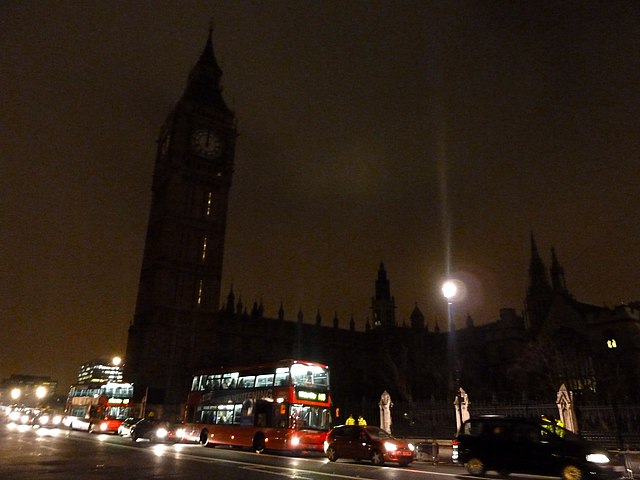
Switching Off The Lights For Earth Hour
At 8.30pm local time, Saturday 26th of March, countries across the world will turn off their lights in recognition of Earth Hour. This grassroots movement, organised by the World Wildlife Fund (WWF), started on Saturday 31st of March 2007 when over 2.2 million Australian Sydney-siders and 2,000 businesses switched off their lights in unison to demonstrate climate change concern to government.
The Clock’s Ticking…
Over time, Earth Hour has grown to involve more than 190 countries and territories as they switch off lights for an hour on the last Saturday night of March each year. This date is around the Spring and Autumn Equinoxes in the Northern and Southern hemispheres, which means almost identical sunset times. The event has seen cityscapes dim and led to key monuments, including The Colosseum and Golden Gate Bridge and Big Ben (pictured, in 2021) become silhouetted against the night sky.
As well as saving electricity, the initiative provides an instant and dramatic visual impact to help start conversations – because after all, time is running out to tackle climate change and so the initiative is about much more than an hour. The symbolism of Earth Hour serves as a catalyst for change, by sparking talk about environmental matters and encouraging individuals and businesses to consider ideas and practical solutions to counteract the problem. Through each of us living and working more sustainably, by eliminating plastics, saving water and wasting less food amongst other things, the world can start to heal.
Since its early days, the Earth Hour movement has inspired the completion of many environmental projects, such as WWF-Uganda creating an Earth Hour Forest, launching education programmes in schools in Taiwan and Thailand and distributing thousands of wood-saving stoves to Madagascan families.
Call to Action!
Join in! During the switch-off, you could play a board game by candlelight, share a meat-free meal or stroll beneath the stars. You could spread the word on socials or go a step further and plan an Earth Hour event with family and friends, online or in your community to really get the conversation started. Perhaps you could use the time to come up with some of your own green initiatives going forward.
The Earth Hour website (link at the end of this article) has starter packs full of suggestions and tips for individuals and businesses to join in and a link to register an event should you wish. It also has plenty of ideas for living greener. The WWF site also provides lots of insightful content, including a link to its free ‘My Footprint’ app where you can work out your impact on the environment and choose steps to reduce it.
For further details you can visit the official sites below.
Join One Of The World’s Largest Movements for Nature | Earth Hour 2022
Earth Hour: 8:30pm on Saturday 26 March | WWF
image: Magnus D. https://flickr.com/photos/72092002@N00/5562735686
Deborah Caine also writes personalised poems. If you are interested you can find out more here.
